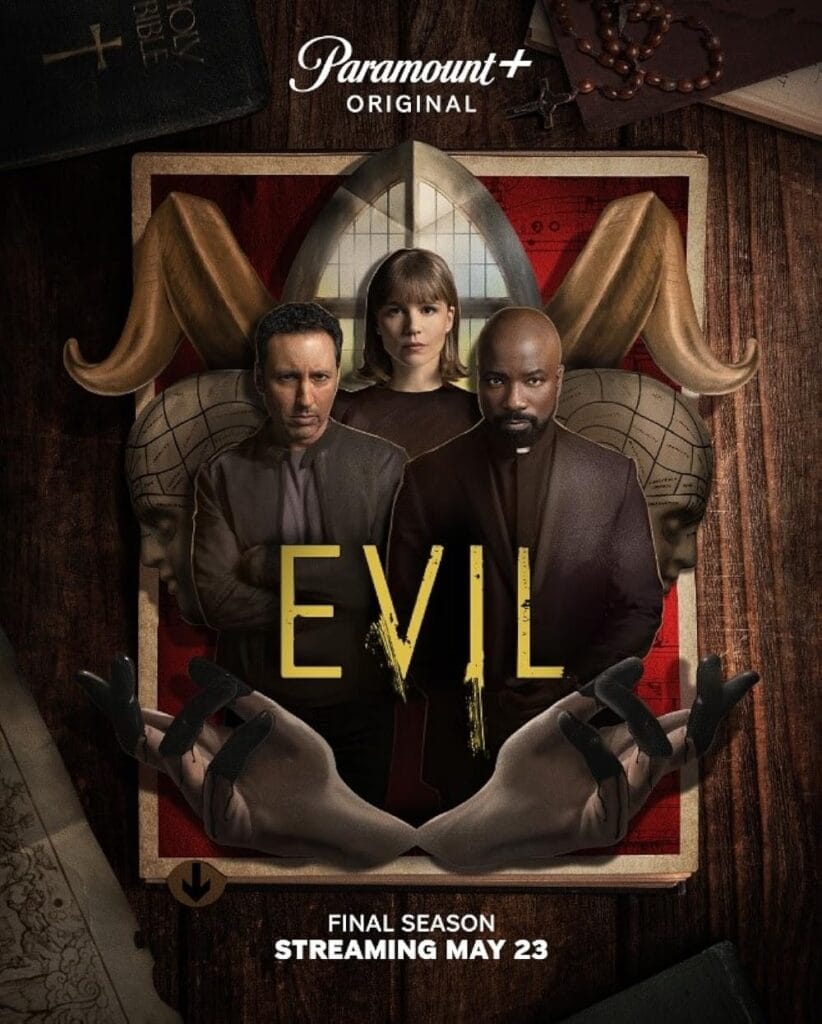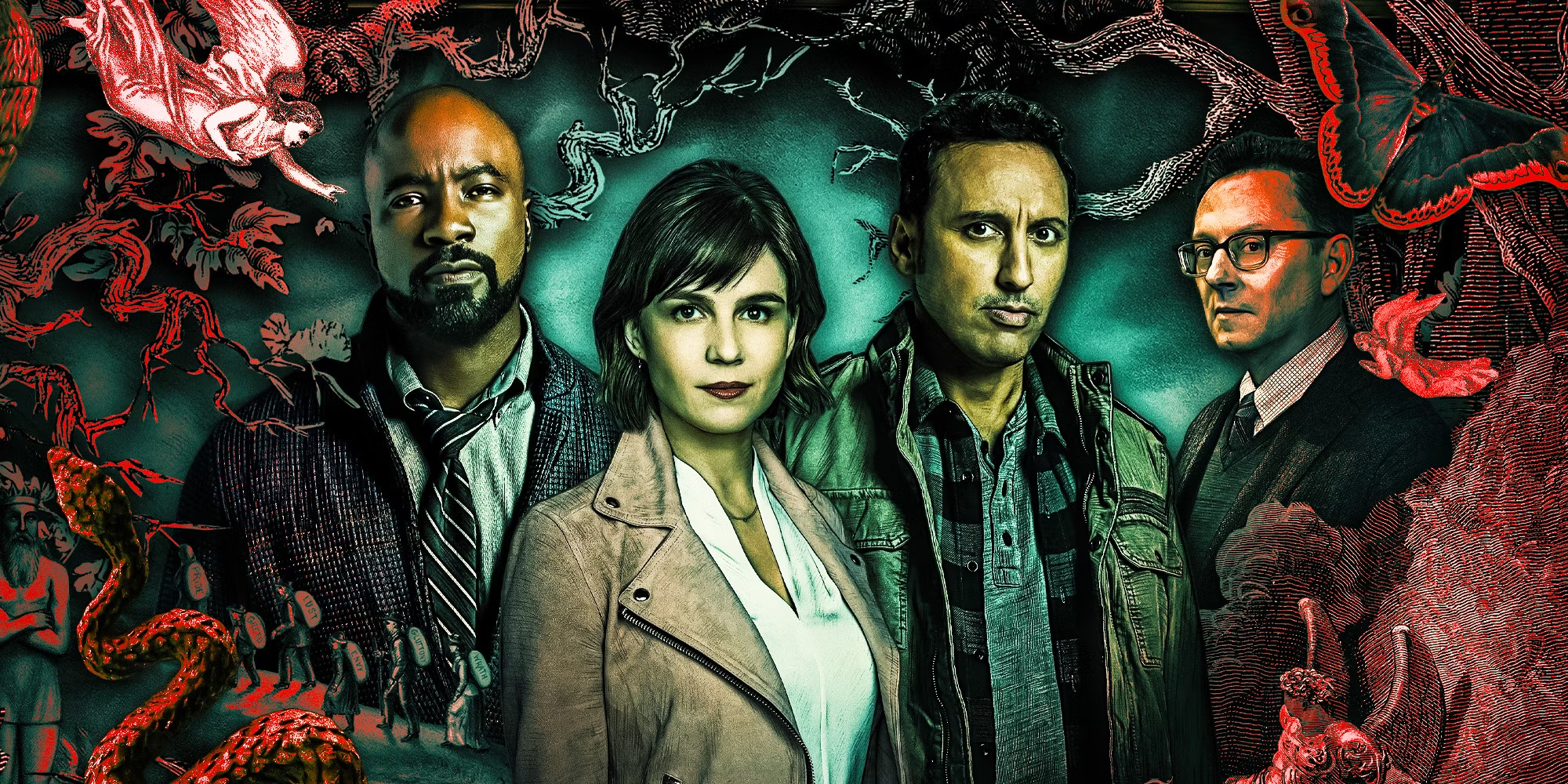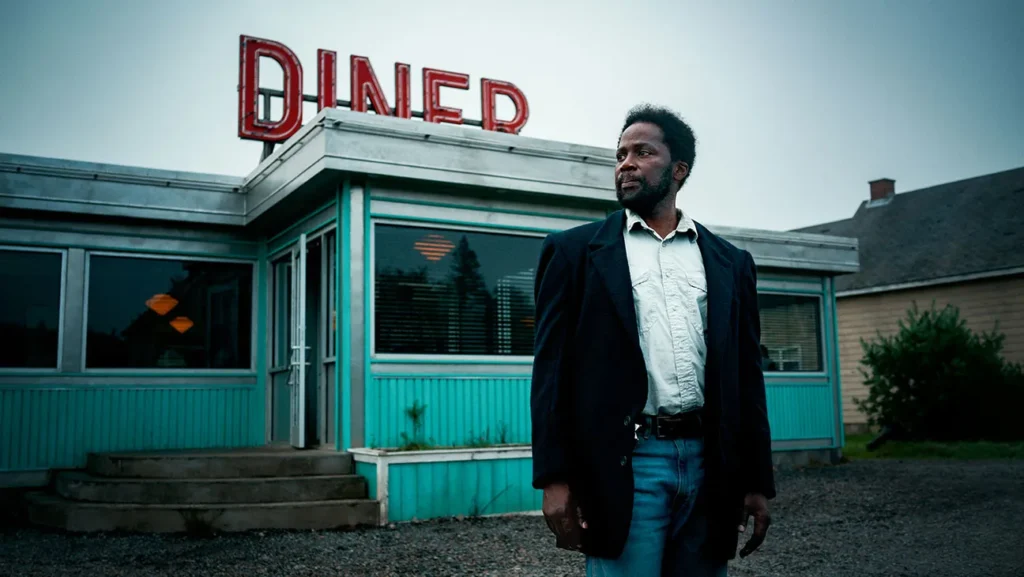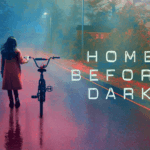‘Evil’ is a thought-provoking TV show that delves deep into the exploration of the nature of evil, intertwining elements of psychological drama, the supernatural, and procedural crime investigation. Created by the talented duo Robert and Michelle King, the show premiered on CBS, captivating audiences with its intricate narrative and complex characters.
At its core, ‘Evil’ revolves around the theme of discerning the origins of evil—whether it stems from supernatural forces or human nature. The show follows Kristen Bouchard, a forensic psychologist played by Katja Herbers, who teams up with David Acosta, a seminarian portrayed by Mike Colter, and Ben Shakir, a skeptical contractor brought to life by Aasif Mandvi. Together, they investigate cases of supposed demonic possession, miracles, and other phenomena that challenge the boundaries of reality and belief.
‘Evil’ seamlessly blends genres, creating a unique viewing experience. The psychological drama component dives into the minds of the characters, exploring their fears, doubts, and moral dilemmas. The supernatural thread introduces elements of the paranormal, keeping viewers on edge as the characters encounter unexplained events that defy rational explanation. Meanwhile, the procedural aspect anchors the show in a familiar format, providing structure as the team methodically approaches each case with skepticism and critical thinking.
The show’s overarching question—what is the true nature of evil?—serves as the driving force behind the narrative. It invites viewers to ponder whether the malevolent forces encountered are the result of paranormal activity or manifestations of human malevolence and psychological issues. Through its multifaceted storytelling approach, ‘Evil’ challenges its audience to confront their own beliefs and assumptions about the origins of evil, making it a compelling and intellectually engaging series.

Character Analysis: The Main Protagonists and Antagonists
The TV show Evil presents an intricate tapestry of characters that deepen the narrative, enriching its exploration of the paranormal and moral complexities. Central to this drama are the principal protagonists: Dr. Kristen Bouchard, David Acosta, and Ben Shakir. Each character brings a unique perspective to their collective mission to unravel the mysteries they encounter.
Dr. Kristen Bouchard, a forensic psychologist portrayed by Katja Herbers, serves as the analytical backbone of the team. Her professional grounding in psychological principles allows for a methodical approach to the phenomena they investigate. Kristen’s motivation stems from her quest for empirical evidence, driven by a blend of skepticism and curiosity. Her personal journey underscores a balance between scientific rationality and the often intangible nature of their cases, contributing significantly to the show’s exploration of the human psyche.
David Acosta, a priest-in-training played by Mike Colter, offers a counterbalance with his spiritual insight. His character delves into the realms of faith and belief, introducing religious perspectives that challenge Kristen’s more scientific stance. David’s background as a former journalist enriches his character, providing him with investigative skills that complement his theological insights. His motivations are rooted in finding a greater truth and combating evil, which aligns seamlessly with themes of moral ambiguity.
Ben Shakir, the technology contractor depicted by Aasif Mandvi, rounds out the trio with his technical expertise. His skepticism and rational mindset often serve as a counterpoint to the more metaphysical elements of their investigations. Ben’s pragmatic approach aids in debunking supernatural claims while also acknowledging the inexplicable aspects that logic fails to address. His presence is vital in bridging the gap between the supernatural and the tangible, creating a more grounded reflection of paranormal investigations.
Standing in stark contrast to the protagonists is the show’s primary antagonist, Leland Townsend, portrayed by Michael Emerson. Leland is the epitome of malevolent forces, often acting as their primary adversary. His motivations are shrouded in nefarious intent, embodying the darker aspects of human nature and psychological manipulation. Leland’s character is crucial in driving the narrative into territories of moral complexity, posing ethical dilemmas that the protagonists must grapple with.
Together, these characters create a rich narrative fabric that propels Evil beyond a conventional TV show, infusing it with profound questions about the nature of truth, belief, and the battle between good and evil. Through their interactions and individual journeys, the show masterfully navigates the delicate balance between the rational and the supernatural.
Themes and Symbolism: Unpacking the Layers of ‘Evil’
One of the paramount strengths of the TV show ‘Evil’ lies in its rich tapestry of themes and symbolism. At the show’s core, the clash between faith and science is a recurring narrative that probes some of humanity’s most definitive questions. Dr. Kristen Bouchard, a forensic psychologist, and David Acosta, a priest in training, embody this dichotomy. Their dynamic relationship and contrasting viewpoints offer a nuanced examination of the nature of belief, challenging viewers to contemplate the boundaries between the spiritual and the empirical.
This exploration extends to the tension between good and evil, a fundamental theme that permeates each episode. While the show’s title might suggest a straightforward engagement with malevolence, ‘Evil’ delves into the complexities of moral ambiguity. Characters are often presented with moral dilemmas that question the simplicity of traditional good versus evil narratives. This adds depth to the storytelling, as viewers are invited to navigate the gray areas along with the protagonists.
The series also tackles pressing issues like mental illness and religious skepticism. By portraying characters who grapple with psychological disorders and skepticism, ‘Evil’ paints a realistic portrayal of how these issues intersect with supernatural phenomena. The impact of trauma is another critical theme, as seen in Kristen’s personal struggles which are interwoven with the overarching plot, offering a heartfelt look at the enduring impacts of past experiences on present behaviors.
Furthermore, ‘Evil’ utilizes a plethora of symbols and motifs to enhance its narrative complexity. Religious iconography, such as crosses and holy water, is frequently juxtaposed with supernatural entities and psychological cues, creating a compelling and eerie atmosphere. These symbols are not merely decorative; they serve as narrative devices that deepen the viewer’s engagement by subtly reinforcing themes and emotions throughout the episodes.
Overall, the meticulous incorporation of these themes and symbols creates a thought-provoking environment that keeps viewers engrossed. By balancing elements of the paranormal with grounded examinations of human nature, ‘Evil’ stands out as a show that offers more than just scares— it provides a lens through which to examine some of our most profound existential dilemmas.
Impact and Reception: ‘Evil’s’ Place in Modern Television
‘Evil’ has garnered considerable attention and acclaim within the realm of modern television, largely due to its unique blend of psychological horror, procedural drama, and philosophical inquiry. The TV show received favorable reviews from both critics and audiences, earning a reputation for its intelligent storytelling and complex character development. On prominent review aggregator sites, ‘Evil’ boasts impressive ratings, reflective of its ability to captivate and engage viewers across demographics.
Critical appraisal has frequently highlighted the show’s ability to weave together themes of the paranormal and religion in a manner seldom explored in mainstream media. The portrayal of its central characters, including the skeptical psychologist, the priest-in-training, and the tech-savvy contractor, not only adds layers of depth but also resonates with a diverse audience. This character-driven approach, combined with thought-provoking narratives, has bolstered its standing amidst a crowded television landscape.
‘Evil’ has received several nominations and awards, underscoring its artistic value and cultural relevance. Its recognition at various television award ceremonies speaks volumes about its impact. Moreover, the show’s courageous examination of good versus evil and the nature of belief invites viewers to question and reflect, thereby fostering a more profound viewer engagement. This thematic richness sets ‘Evil’ apart from other series in the paranormal and procedural genres.
When compared to other genre contemporaries, ‘Evil’ stands out for its bold narrative choices and willingness to tackle sensitive subject matter. While shows like ‘Supernatural’ and ‘The X-Files’ have paved the way for genre hybrids, ‘Evil’ carves its niche through a sophisticated blend of horror and philosophical discourse. This multi-faceted approach enlivens the genre, introducing fresh perspectives and fostering a broader dialogue on themes of faith, skepticism, and human nature.
Looking ahead, ‘Evil’ shows promising potential for enduring success. Its continuous exploration of profound and polarizing themes ensures that the narrative remains compelling. As the show progresses, it is anticipated that upcoming seasons will delve deeper into the complex interplay of the paranormal and philosophical dilemmas, cementing its significance in the annals of modern television.









